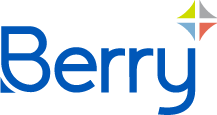
View:
BERRY GLOBAL GROUP, INC
March 25, 2021
VIA EDGAR
United States Securities and Exchange Commission
Division of Corporation Finance
Office of Manufacturing
100 F Street, N.E.
Washington, DC 20549
Attention: Ms. Effie Simpson
Mr. Andrew Blume
Re: Berry Global Group, Inc.
Form 10-K for the Fiscal Year Ended September 26, 2020
Filed November 23, 2020
File No. 001-35672
Dear Ms. Simpson and Mr. Blume:
Please find below the responses of Berry Global Group, Inc. (the “Company”) to the comments of the staff (the “Staff”) of the Division of Corporation Finance of the Securities and Exchange Commission
(the “Commission”) contained in your letter dated February 26, 2021 regarding the Company’s Form 10-K for the Fiscal Year Ended September 26, 2020 (the “Form 10-K”). Each response below corresponds to the italicized comment that immediately precedes it, each of which has been reproduced from your letter in the
order presented.
Form 10-K for the Fiscal Year Ended September 26, 2020
Stockholders’ Equity, page 48
1. We
have read your response to comment 5 and do not believe it provides sufficient information to support your use of the simplified method. Please provide a more thorough response that supports your conclusion that it is appropriate in your facts and
circumstances to apply the simplified method to all option grants.
• Confirm that all options granted are "plain vanilla," as that term is described in Questions 5 and
6 of SAB Topic 14D.2. If subsequent to grant you have modified any options, please confirm that the modified options are “plain vanilla.”
• Your response references the "relatively short duration" that you have had publicly traded stock
compared to the stock option life of ten years. Considering it appears you have been a publicly traded company since October 2012, explain to us why this extended period of historical exercise activity does not provide a reasonable basis upon which
to estimate expected term. In your response, also explain why you used the simplified method for all grants as opposed to a subset of grants for which sufficient historical exercise data exists.
• Tell us the "significant changes" you made to your equity plan, including when they were made and
to what options they relate, and why those changes support use of the simplified method.
• Your response references the "number of participating employees and allocations of annual awards
compared to historical practice." Clarify what you mean by this statement and explain to us its relevance.
All stock options granted by the Company have been “plain vanilla” since the Company’s initial public offering (“IPO”). The
Company’s historical use of the simplified method for the valuation of stock options was primarily the result of a lack of sufficient relevant exercise history as the Company’s first option grants issued since the IPO do not reach expiration until
October 2022. Additionally, the Company has significantly changed in both size and geographic footprint since the IPO, which has resulted in significant changes in both the number of participants and allocation of option grants. The Company’s
revenue has increased from $4.7 billion at our IPO to $11.7 billion in our most recently completed fiscal year. This growth has predominately come from acquisitions. The most significant acquisition was RPC Group Plc in July 2019, which consisted
of primarily non-U.S. based operations. The changes in numbers of global participants is evidenced by the fact that prior to the RPC acquisition the average annual participants in the Company annual equity program since the IPO was ~550 with ~90%
being granted to North American based employees compared to ~1,100 annual option grant participants since the completion of the RPC acquisition with ~50% being granted to North American based employees with the difference being primarily attributed
to the non-U.S based employees from the RPC acquisition.
The majority of stock options that have been exercised since the IPO relate to options that were issued prior to our IPO. The
Company does not believe exercise history related to stock options granted pre-IPO is an appropriate indicator of future expected stock option life as these options (1) were not liquid as a private Company (2) were only issued one-time based on
employment level and (3.) had various vesting criteria. Liquidity was limited to a departure of the employee from the Company or a change in control event. In contrast, since the IPO, awards have been issued annually based on level and merit with a
10-year life which can be exercised by the recipient upon vesting (5-year time-based vesting period).
Please note from a significance perspective that a one year change in the expected term of the Company’s stock option grants
in fiscal 2020 would equate to an immaterial, ~$3 million, total impact to stock compensation expense which would be recognized over the five-year vesting life.
We acknowledge the Staff’s comment and will continue to monitor for sufficient exercise data and, going forward, use this data
to determine the expected option life on future option grants or a subset of those grants for which employee exercise experience enables us to make a reasonable estimate.
* * * *
Please contact me if you have any questions or comments relating to the matters referenced above. Thank you for your attention to this matter.
Sincerely,
/s/ Mark W. Miles
Mark W. Miles
Chief Financial Officer
Berry Global Group, Inc.